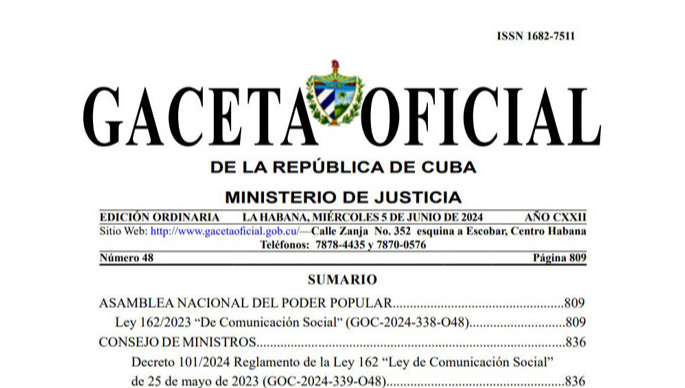
The Social communication law is the result of a broad process of debate, as is customary in our country
by María Josefina Arce
Approved by Cuba’s National Assembly of People's Power last May, the Law of Social Communication, which protects the right of citizens to information and communication as enshrined in the Constitution of the Republic, enters into force today.
According to Cuban President Miguel Díaz Canel, the greatest value of this legislation is that it recognizes the benefits and potential of social communication for the development of the country.
The law is the result of a broad process of debate, as is customary in our country. It involved more than seven THOUSAND experts and generated hundreds of opinions, 76% of which were taken into account.
In this exchange, the voices of students and university professors, journalists, artists, deputies, businessmen and representatives of the new economic actors were heard.
But it was also nourished by more than two centuries of Cuban communication practice and international references on the subject.
Alfonso Noya Martínez, President of the Institute of Information and Social Communication, stressed that this legal instrument was inspired by the legacy of the historic leader of the Cuban Revolution, Fidel Castro, a great communicator, he said, his gift of listening, understanding and accountability to the people.
According to the experts, one of the main purposes of the law is to strengthen the independence, integrity and sovereignty of the homeland in the face of the current world scenario, which is characterized by manipulation, the spreading of lies and incitement to hatred.
It also seeks to guarantee the right to information, promote transparency in public administration and the participation of citizens in the decision-making process.
The norm seeks to build a system that, in addition to considering media such as radio, television and the written press, also covers communication in communities, delegates with their public, institutions and organizations. And a novelty in recent years in the country, is the fact that one of the regulations that compose it, specifically Decree 102, recognizes and establishes the exercise of advertising and sponsorship.
The Law on Social Communication is undoubtedly a necessary legal instrument, by and for everyone, which strengthens the values and identity of the nation.

